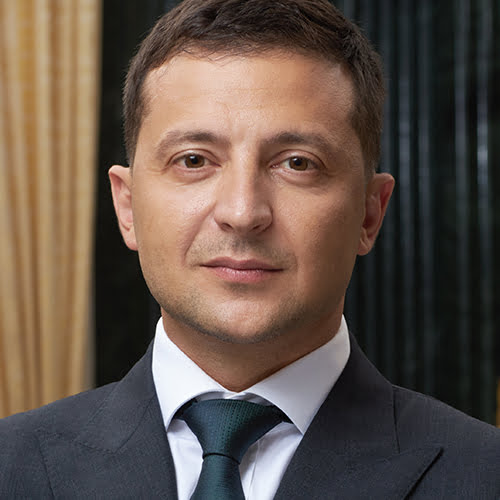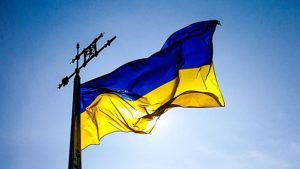EC orders Europe-wide ban on RT and Sputnik over Ukraine invasion
The European Union has banned Russian state-backed channels RT (fka Russia Today) and Sputnik from operating across the continent as the conflict in Ukraine intensifies.

Volodymyr Zelenskyy
European Commission president Ursula von der Leyen announced the move over the weekend as part of a package of sanctions against Russian president Vladimir Putin and his government.
She said: “Russia Today and Sputnik, as well as their subsidiaries, will no longer be able to spread their lies to justify Putin’s war and to sow division in our union. So we are developing tools to ban their toxic and harmful disinformation in Europe.”
Individual nations such as Poland, Latvia and Estonia had already begun taking the channels, which have long been accused of spreading Russian propaganda, off air at the end of last week.
Putin ordered troops into neighbouring Ukraine last week and a full-scale invasion and aerial bombardment continued overnight.
Ukraine’s president Volodymyr Zelensky was originally a TV producer and comedy star who was propelled into the job after starring in local original Servant of the People, in which a fictitious TV star rose to be president of Ukraine. He remains in the capital, Kyiv, leading the resistance.
Economic sanctions against Russia have been ratcheted up by the West. The rouble lost 30% of its value against the dollar in early Monday trading and the Russian central bank has lifted the interest rate to 20% as citizens queue at ATMs to withdraw their money. A number of Russian banks have been excluded from the Swift international payment system.
Asylum has been offered to Ukrainian refugees across Europe and the continent’s airspace has been closed to all Russian-registered aircraft.
In television, Roskino has been barred from the forthcoming Series Mania event, to be held in France next month, following intervention from the French culture ministry. The government-backed agency promotes Russian film and TV content abroad and was due to host a showcase at the Lille event, which runs from March 18 to 25. Screen Daily first reported the news.
The European Broadcast Union (EBU) has also dropped Russia from the annual Eurovision Song Contest, which is due to take place in Italy in May.
The EBU had initially said Russia would take part as the competition is non-politicial. It said it was dedicated to “protecting the values of a cultural competition which promotes international exchange and understanding, brings audiences together, celebrates diversity through music and unites Europe on one stage.”
However, Ukrainian public broadcaster UA:PBC protested and drew support from Iceland, Norway, the Netherlands and elsewhere. On Friday, a host of broadcasters, led by Finland’s YLE, said they would not take part if Russia were included in the competition, forcing the EBU into a U-turn.
 In a statement the EBU said: “The executive board of the EBU made the decision following a recommendation earlier today by the Eurovision Song Contest’s governing body, the Reference Group, based on the rules of the event and the values of the EBU.
In a statement the EBU said: “The executive board of the EBU made the decision following a recommendation earlier today by the Eurovision Song Contest’s governing body, the Reference Group, based on the rules of the event and the values of the EBU.
“The decision reflects concern that, in light of the unprecedented crisis in Ukraine, the inclusion of a Russian entry in this year’s contest would bring the competition into disrepute. The EBU is an apolitical member organisation of broadcasters committed to upholding the values of public service.”
Ukraine won the competition in 2016, beating the favourite, Russia, with a song widely interpreted as protesting Russia’s annexation of the Crimea region. The win gave the country the chance to host the 2017 edition, which was boycotted by Russia and its Channel One after the country’s entry, Julia Samoylova, was refused entry into Ukraine because she had toured Crimea without entering it from the Ukrainian mainland, which is illegal under Ukrainian law.
Formula 1 has already cancelled September’s Russian Grand Prix, which was due to take place in Sochi.
There is now mounting criticism of and pressure on football’s international governing body, Fifa, ahead of this year’s World Cup, one of television’s biggest sporting events, which is already controversially taking place in Qatar in December.
Fifa has refused to expel Russia from the tournament and has instead followed the International Olympic Committee’s lead by allowing the country to compete under the banner of The Football Union of Russia, without a flag or a national anthem, and with all games played on neutral territory without crowds.
Russia are involved in the play-off qualification for the tournament, due to be decided next month, but all three of their potential opponents – Poland, Sweden and the Czech Republic – have rejected Fifa’s solution and say they will refuse to play Russia, even if that jeopardises their own place in the tournament.
The Football Associations of England and Wales also said on Sunday they would boycott any fixtures with Russia at any level for the foreseeable future.
If Fifa’s stance does not change and more nations follow Poland, Sweden and the Czech Republic’s lead, the whole tournament could be called into question. Fifa president, Gianni Infantino, was previously presented with Russia’s Order of Friendship medal by Putin after the country hosted the 2018 World Cup.
European football’s governing body, UEFA, has already moved this year’s Champions League final from St Petersburg to Paris but has not expelled Russian teams from its competitions. Spartak Moscow will have to play their Europa League last 16 clash with Germany’s RB Leipzig on neutral territory without fans, but the match is still scheduled to go ahead.
Elsewhere, The North American Broadcast Association (NABA), which represents broadcasters from Canada, US and Mexico, issued a statement late on Friday saying its members must be left free to report on the conflict without hindrance or interference as Russia surrounds Kyiv and prepares to lay siege to the capital.
The statement said: “As the situation between Russia and Ukraine escalates, access to trusted, factual and impartial information is more critical than ever.
“All media broadcasters and NABA members are focused on doing our job for the public in difficult circumstances and we will not hesitate to condemn any infringements or violations of press freedom.
“It is vital for journalists to be allowed to continue to operate both freely and safely, and report without hindrance. Supporting media freedom must be prioritised, not despite these challenging circumstances but because of them.”









 In a statement the EBU said: “The executive board of the EBU made the decision following a recommendation earlier today by the Eurovision Song Contest’s governing body, the Reference Group, based on the rules of the event and the values of the EBU.
In a statement the EBU said: “The executive board of the EBU made the decision following a recommendation earlier today by the Eurovision Song Contest’s governing body, the Reference Group, based on the rules of the event and the values of the EBU.



.jpg)




























